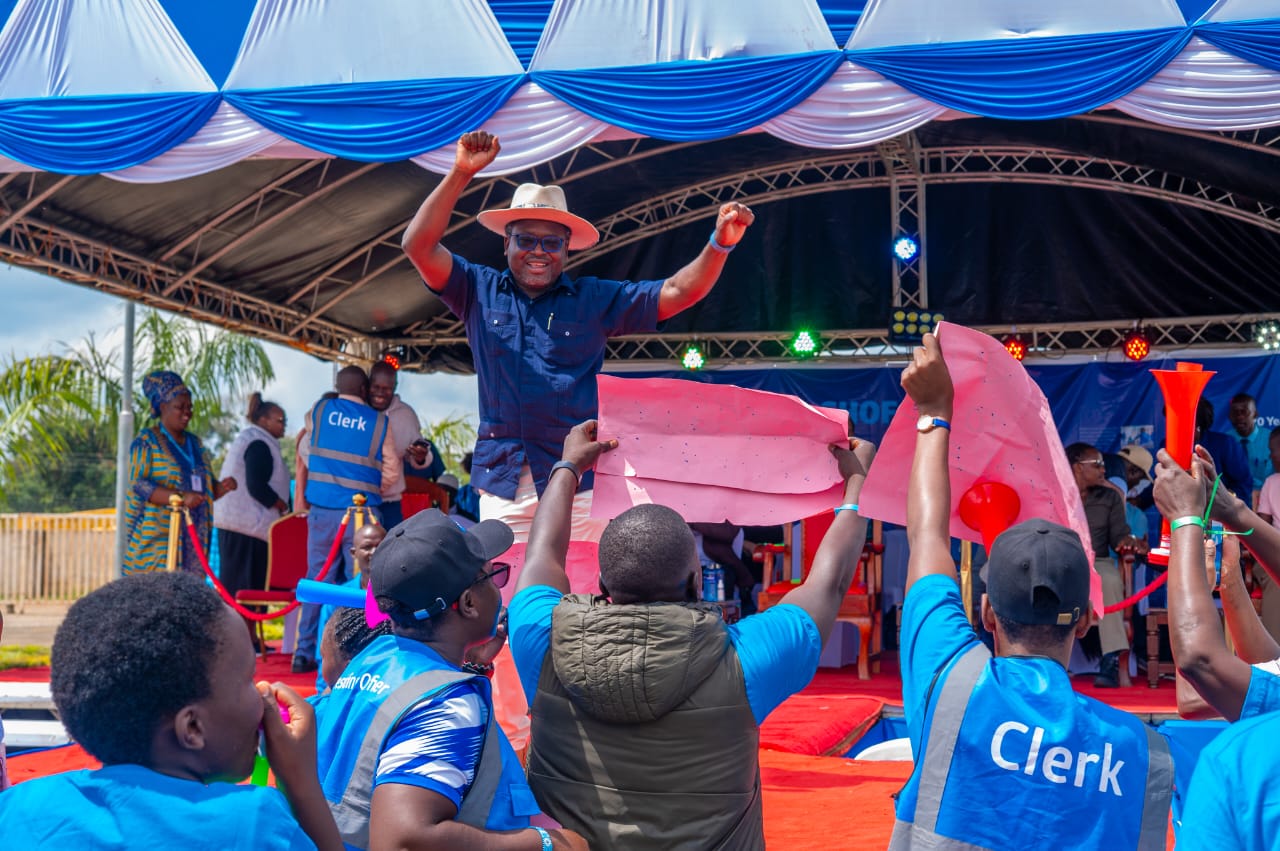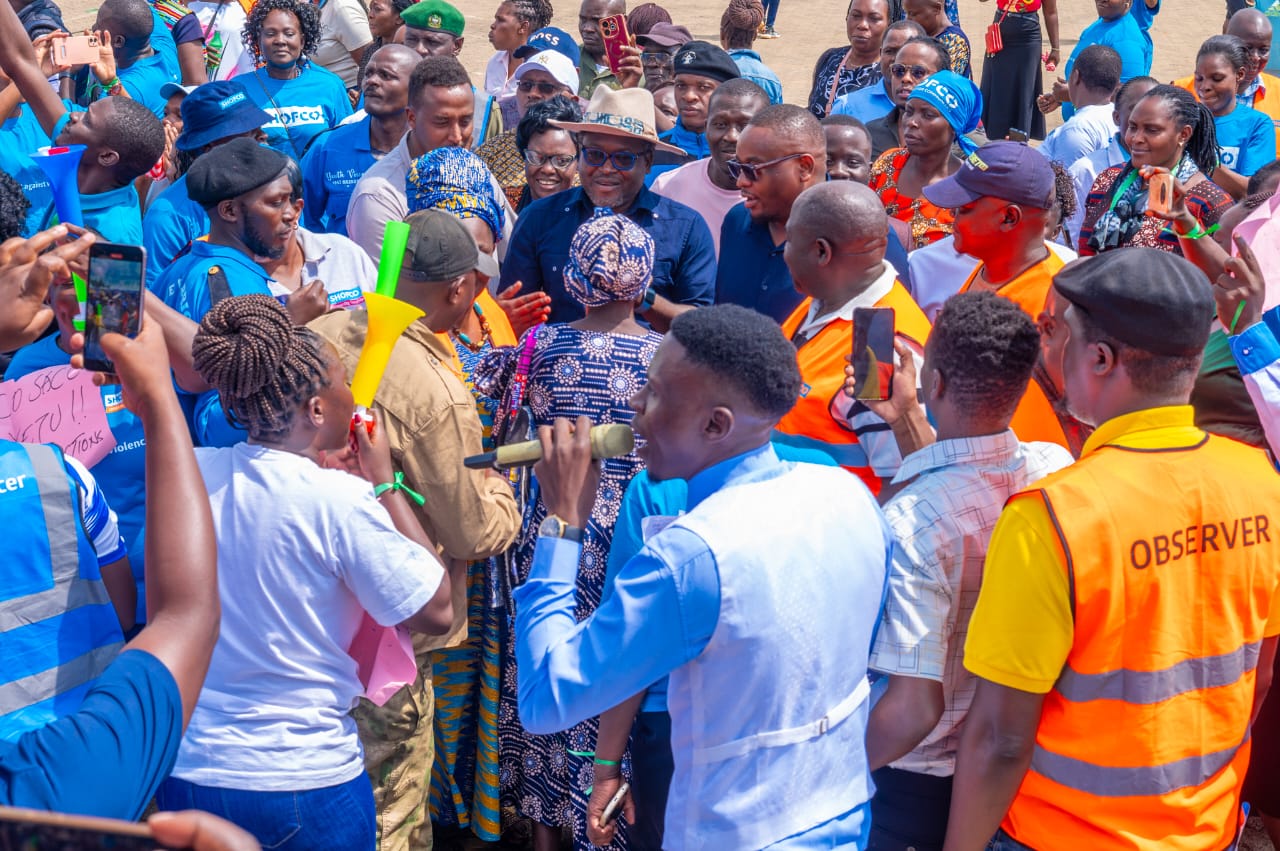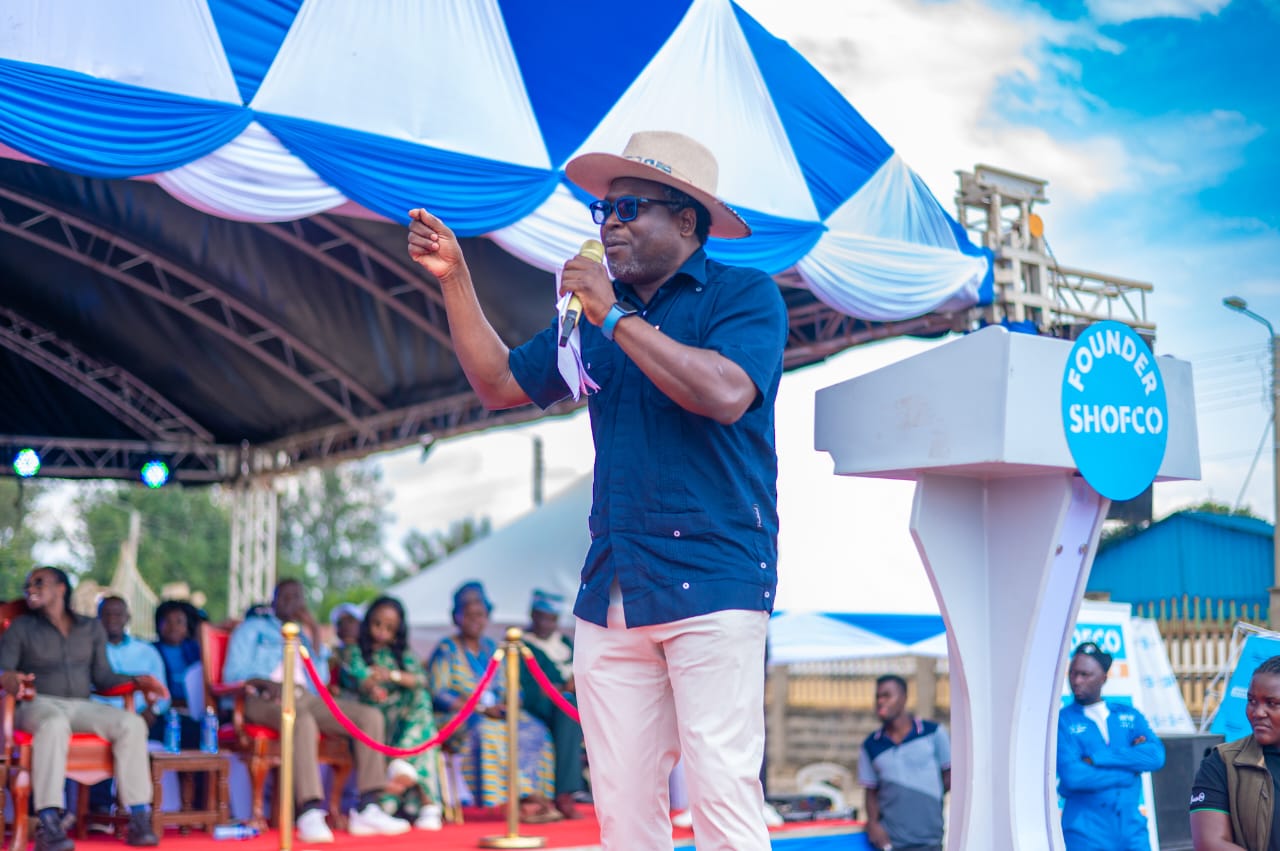

Shining Hope for Communities (SHOFCO) has intensified its Gender and Inclusion campaign in Western Kenya by rolling out an integrated strategy with survivor support, community networks, child protection, financial inclusion, and local partnerships.
In a two-day gender campaign in
Kakamega and Vihiga counties this week that brought together over 10, 000
locals, SHOFCO Founder and CEO Dr. Kennedy Odede emphasized on the need to
invest on gender-based violence prevention through various interventions such
as scholarships, woman empowerment programs and community sensitization.
“For
too long, our focus has been reactive; we respond only after harm has occurred.
As a society, we have delayed investing in education, community outreach,
and safe spaces, and we have allowed cycles of violence to continue.
“At
SHOFCO, we are striving to reach those who have been neglected, especially in
rural areas across Kenya,” Dr. Odede said.
During
the sensitisation events, SHOFCO, under its Shofco Urban Network (SUN) program,
conducted the election of community leaders who will spearhead change in their
areas and act as a link between state authorities and the private sector.
“Investing
in GBV prevention through community leaders is essential. This is because they
are the first line of defence, the trusted voices in families, churches,
mosques, and village gatherings.
“The
leaders who have been elected will be equipped with knowledge and resources to
protect the vulnerable and stop violence before it begins,” Dr. Odede stated.
SHOFCO is currently handling 119 abuse cases in court in the two counties.

The
organisation is also carrying out Rights of Children (ROC) training in schools
across the two counties.
“When
children understand their rights, they begin to recognise abuse for what it is.
More importantly, they learn how to speak out, seek help, and support each
other.
“Through
our ROC program, we have reached 3,774 in schools across Vihiga and Kakamega
counties this year. This program creates a generation that knows that violence
is not normal and that every child, regardless of gender, has value,” SHOFCO
Project Director Angela Ng’etich said.
The
organisation has also received 2,874 cases of various abuses involving women,
girls and men this year.
At the same time, the SHOFCO has carried out community sensitisation activities that have reached thousands of residents of Vihiga and Kakamega counties.
Available
data shows GBV is still a big challenge in Kenya, with at least 678 women and
girls murdered by intimate partners between 2016 and 2024.
According
to a 2022 Kenya National Bureau of Statistics (KNBS) survey, about a third of
all women ages 15 to 49 have experienced physical violence since age 15, and 13%
have experienced sexual violence at some point.
SHOFCO
is partnering with both national and county governments to fight the vice in both
rural and urban areas.
“Our experience on the ground has shown us that gender-based violence cannot be addressed by one sector alone. As an NGO, we bring proximity to survivors, trust within communities, and the flexibility to respond quickly.

“But
it is only when we partner with government through coordinated case management,
arrests, arraignment, and joint advocacy that we see real and sustainable
change,” the SHOFCO Gender and Inclusion Director said during the campaign in
Western Kenya.
SHOFCO
is also investing in affordable credit for women and GBV survivors to create an
environment where they can survive on their own without depending on abusive
partners.
“When
a woman has access to a small loan, she can start a business, support her
children, and walk away from abusive situations with dignity.
“Economic
empowerment is not just about income, it’s about power, confidence, and
options. At SHOFCO Sacco, we make that a reality and we have an office in
Kakamega that serves the entire Western region,” Shofco Sacco General Manager
Victor Ochie’ng said during the two-day sensitisation tour.
The organization is addressing GBV using various
methods which include provision of safe houses, medical attention, psychosocial
counseling, legal assistance, mental health awareness, real-time data system,
multi-sector coordination, and economic empowerment.













